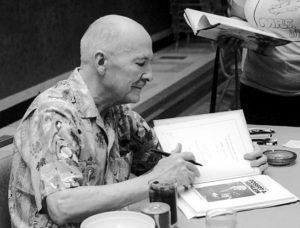By SUE COLETTA
Calling all fantasy lovers! Please enjoy today’s offering from another brave writer. I’ll catch you on the flip-side with my comments.
The Arthani Prince
The Arthani palace was much smaller than the Razvian one, but what it lacked in size it made up for in flowers. Crowding in on the pathways, spilling out of boxes on every ledge, even hanging off tree branches. Any inch that wasn’t filled with flowers had decoratively carved pieces of coral, another Arthani specialty. Mulk-Arthan bordered the sea, and so had an unlimited access to coral and pearls.
Niketa walked across the palace grounds, dutifully studying the list of questions her father had given her. Her father, King of Razvia and recent conqueror of this country, wanted her to interrogate the Arthani prince for information. One of her duties as her country’s spy master was to interrogate prisoners of war. She still wasn’t sure how that would work, especially since his father was dead and the two most important people in his life were not in custody.
Razvian kings liked to keep their prisoners right in the palace, but the Arthanis had built their prison at the edge of the grounds. Niketa unlatched the door and walked inside–a dirt floor, with a table and stools set up in the center. Prison cells—little more than wooden cages for people—lined every wall. She left the door open as she approached Prince Ezhil’s cage.
“I have questions for you,” she said, trying to keep her voice light. “Would you like to talk in there or come out?”
“Either way is fine with me,” the Arthani prince said gravely. “Whatever is more comfortable for you.”
She grinned and unlatched his cell. “Sit at the table and don’t run.”
It took Ezhil a few minutes to comply. She took note of how carefully he moved and how he lurched past her to the table. He wouldn’t be able to run.
“No word from any of you,” she counseled the other prisoners. “Unless you would like to give the information I’m looking for.”
She sat on the stool closest to the open door and studied Ezhil as he settled his bound wrists on the tabletop. She couldn’t decipher anything from his expression, so she decided to hit hard.
“The king needs information,” she said.
“The king is dead,” Ezhil said. There was no grief in his expression, which either meant he never loved his father or that he had an extraordinary ability to lock away his emotions.
Her lips curled into a mocking smile. “The man in the throne room then. Are you willing to give the man in the throne room answers or will you need persuasion.”
***
Full disclosure: fantasy is not my preferred genre. I read very little fantasy, if any. This first page still opens a novel, though. The first page must hook the reader. Even after reading this piece for the umpteenth time, I stilI have no idea what “Mulk-Arthan” is, so I’m afraid you lost me in the first paragraph, Anon. Perhaps it’s me. Fantasy readers, do you understand Mulk-Arthan? Flowers also set a softer scene than what I think you’re going for here. If I’ve misread your intent, feel free to ignore the advice.
In the second paragraph we learn Niketa’s goal, which is great. Good job! This sentence stopped me, though: She still wasn’t sure how that would work, especially since his father was dead and the two most important people in his life were not in custody. Who’s father? I assume from the way this is written Anon meant the prince’s father. Problem is, the sentence begins with Niketa’s thoughts, and then switches to a different point-of-view. The first half is an easy fix. Rather than being vague — i.e. She still wasn’t sure how that would work— make it clear that she didn’t know how the interrogation of the prince would work.
The POV slip is problematic because, how does Niketa know the prince feels this way— “two most important people in his life”— if she hasn’t interrogated him yet? If they have history, perhaps you could show us a glimpse of their former relationship. Example: She hadn’t seen him since she crawled out of his bed, two months ago.
Great visuals in paragraph three: Niketa unlatched the door and walked inside—a dirt floor, with a table and stools set up in the center. Prison cells—little more than wooden cages for people—lined every wall. She left the door open as she approached Prince Ezhil’s cage. Why would she leave the door open if she’s giving the prince the option of leaving his cage? As it reads now, it looks like Niketa is either testing the prince or she’s not that bright. We later learn the former is true, but don’t let the reader assume incorrectly, as I did when I first read this opener. I also thought this was the first time she’s ever interrogated a prisoner. Later, I learned that wasn’t true, but by then you’d already confused me. Be direct and intentional in your writing, Anon.
Then we have this line: “Either way is fine with me,” the Arthani prince said gravely. “Whatever is more comfortable for you.”
This doesn’t ring true for me. First of all, please lose the adverb on the dialogue tag. Instead, use a strong verb to convey the correct emotion. The words he speaks don’t match “gravely.” In fact, if taken out of context, the dialogue sounds like a polite conversation over tea, and not a conversation between a prisoner and his captor.
This also confused me: She grinned and unlatched his cell. “Sit at the table and don’t run.”
It took Ezhil a few minutes to comply. She took note of how carefully he moved and how he lurched past her to the table. He wouldn’t be able to run.
First, she says, “Don’t run.” Then she says, “He wouldn’t be able to run.” Which is it? Are his ankles shackled? If so, then “Don’t run” doesn’t make sense. If his ankles aren’t restrained, then her last comment — He wouldn’t be able to run. — boggles the mind. See my confusion?
Here’s where this reader first learned Niketa has interrogated other prisoners in the past: “No word from any of you,” she counseled the other prisoners. “Unless you would like to give the information I’m looking for.” In this graph, I’d love for you to use a body cue instead of a dialogue tag. You’ve got the perfect opportunity to show Niketa exerting her power over the other prisoners. For example: Niketa’s board-stiff finger raced across each pitiful face. Sooner or later, they’d reveal the killer’s name. Living in cages had a way of bending even the strongest will.
It’s difficult to discern where the story is headed from page one, but I use this example to show how we can sprinkle in attitude/personality as well as drop a few clues for the reader. Remember, our goal is to pique enough interest to force readers to flip the page.
She sat on the stool closest to the open door (<- it’s only here that we discover she is testing the prince, which is too late for this particular reader. I’ve already formed my opinion of Niketa. Perhaps fans of the genre will feel differently and weigh in) and studied Ezhil as he settled his bound wrists on the tabletop. Okay, here we learn he is handcuffed, but that still doesn’t explain why he can’t run. Easy fix. When she first lets him out of his cage, let us hear the clang of the shackles as he shuffles to the table. He wouldn’t be able to “lurch” with shackles on, btw. See how important our word choices are?
She couldn’t decipher anything from his expression, so she decided to hit hard. “The king needs information,” she said. By moving the dialogue up a line, you can remove the tag. Also, you’ve indicated that Niketa would deliver a crushing blow, then didn’t follow through. “The king needs information” is too soft. Either Niketa is a badass spy or she’s meek. Which is it? Show us through her actions and dialogue. I see hints of badass, but it’s not consistent throughout the first page.
“The king is dead,” Ezhil said. Now him, I like. With that one line of dialogue you’ve shown us his spunk. Nicely done! There was no grief in his expression, which either meant he never loved his father or that he had an extraordinary ability to lock away his emotions. Wherever possible, try to rewrite sentences to avoid passive voice. “There was” is passive. The rewrite could be as simple as “No grief crossed his face. Not even a hint of emotion. Didn’t he care that someone murdered his father?”
Her lips curled into a mocking smile. <- Nice body cue! “The man in the throne room then.(<- I would change this for clarity. Try, “I meant, the new king.”) Are you willing to give the man in the throne room answers, or will you need persuasion.?”
I think you’ve got a lot to work with here, Anon. I like the idea of this premise; the landscape promises plenty of conflict. If Niketa and the prince have history, then you’d also have built-in sexual tension, which is always fun to read, IMO. Please note: if I didn’t see something special in your writing, there’d be a lot less red ink. 🙂 Journey forth, dear writer. We’re all rooting for you!
Over to you, my beloved TKZers. Does this opener compel you to flip the page? How might you improve this first page?





